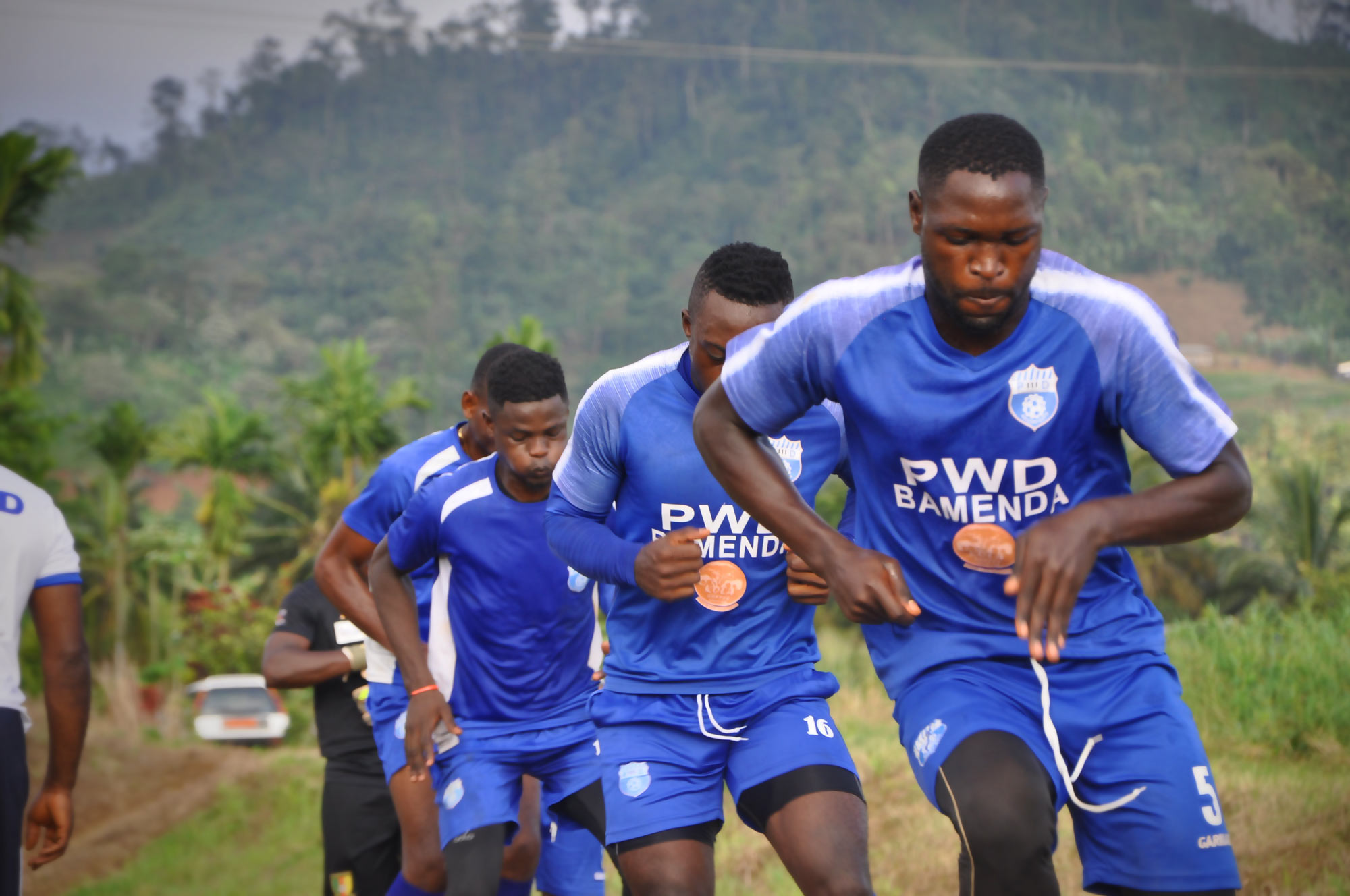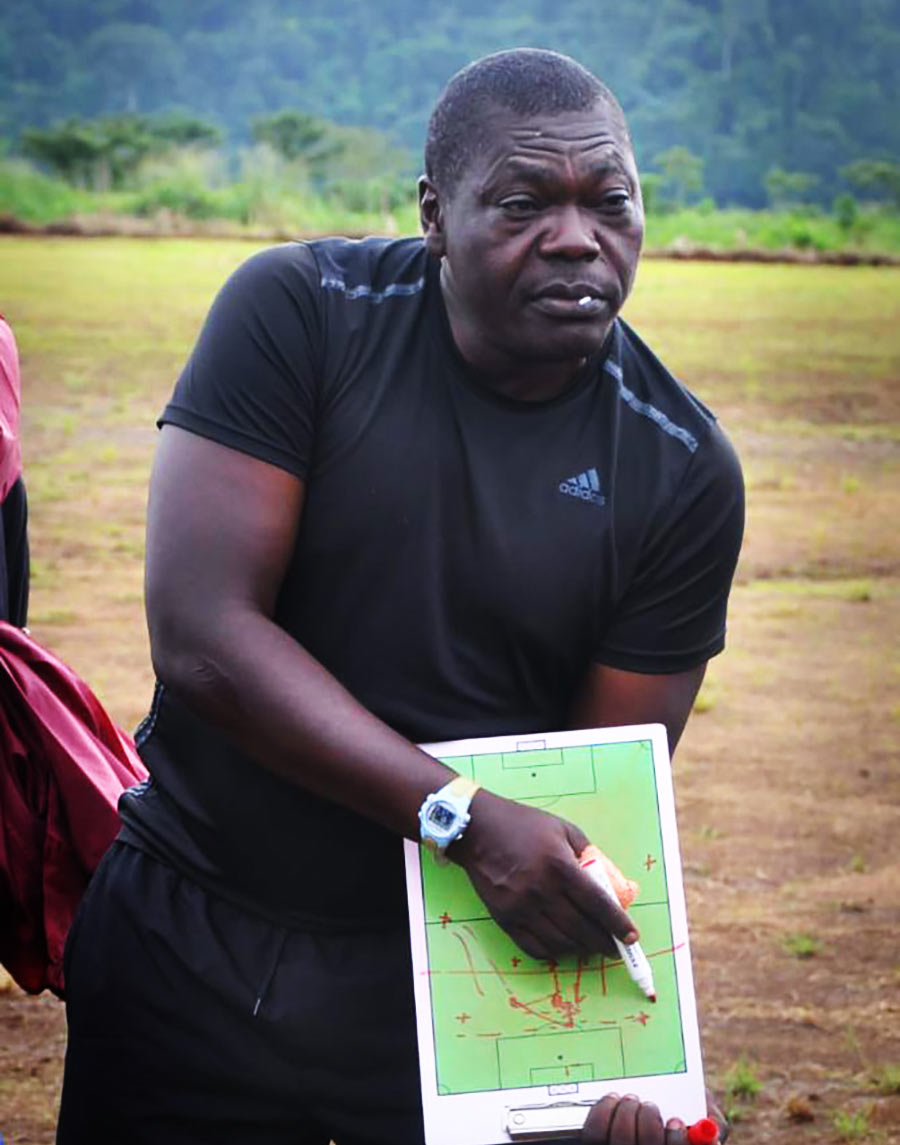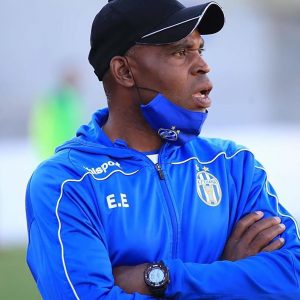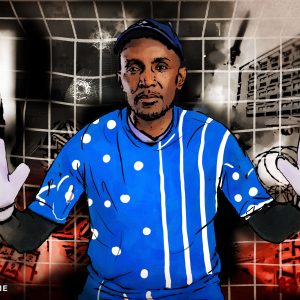PWD Bamenda defy two pandemics in Cameroon
The football club from a marginalised region in the central African nation will be representing their country in the CAF Champions League after winning the league despite being in a war zone.
Author:
2 October 2020

Cameroonian football club PWD Bamenda overcame two pandemics to win the country’s top-flight league for the first time in their history, in a story of resilience and hope.
The side from Bamenda, the capital city of the Northwest Region, defied the odds in a coronavirus-interrupted season by winning the championship in what is essentially a war zone. The 2019-2020 season of the MTN Elite One was cancelled with six rounds to go owing to Covid-19. Bamenda were crowned the champions as they were at the top of the table, a point ahead of Cameroonian giants Coton Sport, with a game in hand. At one point, the Northwest Region was the epicentre of the virus in Cameroon.
“In the long run, our fans told us to fight. They told us to top [the league], that they really wanted a trophy at home for the first time. They knew we could do it, so we did,” said midfielder Nchindo John Bosco.
Bamenda has been dealing with another pandemic of sorts in the region since 2016, when the club was promoted to the second division after a decade in the amateur ranks. That year, problems the country’s English-speaking minority were experiencing were brought to the fore when the Cameroon Anglophone Civil Society Consortium, an organisation made up of lawyer and teacher trade unions, went on strike in protest against French-speaking judges being appointed in the Anglophone region.
The strike morphed into calls for separation while the government responded with violence, resulting in what is now known as the Ambazonia war.
Related article:
When the unrest started in 2016, Abakwa Boys were nearly relegated back into the amateur ranks. But they fought their way out of danger and into top-flight football, where they were again almost relegated last season.
“After that season, the president of the club gave more responsibility to the team, to players from Northwest, who took it as their thing. Remember, most Francophone players of the team were not comfortable playing because they feared being kidnapped,” said Cameroonian football writer Angu Lesley.
Paupers to kings in a war zone
Club president Pascal Abunde told a local radio station at the start of the 2019-2020 season that “we don’t want to be in that relegation battle that we were in last season”.
Haunted by their narrow escape, Bamenda played their way into second place halfway through the season, behind Coton Sport, who are the serial winners of the league with 15 titles. “When we got into the top three, we felt like we could be here [as champions],” Bosco said.

The Abakwa Boys did not maintain their red-hot form in the initial stage of the second phase of the Elite One. They lost points in a series of games and dropped down the table from their second spot.
“It wasn’t easy during that period. There were times we had two weeks of lockdown [imposed by Anglophone separatists]. I would walk on foot for a long distance to go to training because taxis didn’t work on those days. But we had to train,” said Bosco, who scored five goals and provided eight assists.
But while Bamenda were battling their way up the league table, close to 2 000 people were killed and more than 5 000 displaced because of the war. The Norwegian Refugee Council, a humanitarian non-governmental organisation, ranked the crisis as the world’s most underestimated.
Related article:
“Our coach, David Pagou, told us to fight. I thought about that all the time, even in my sleep,” Bosco said.
On match day 28, Bamenda defeated Union Sportive de Douala 2-1 in a highly contested game to move to the top of the league with 47 points. While that was happening, Cameroon recorded its first Covid-19 case on 6 March and by 13 March, the Cameroon Football Federation, Fecafoot, suspended all football activities in the country before announcing Bamenda as the champions.
“We are extremely excited because we were not aiming at becoming champions,” said Nche Alfred, who started supporting the team as a child and is now its fan coordinator in Northwest.

The separatist war
The ongoing separatist war was hatched in November 2016 when English-speaking Cameroonians protested against French-majority rule in their regions: Northwest and Southwest. Before that, Anglophone lawyers and teachers had requested that English be used in law and education in the regions. But the protests and demands were met with a stiff response from Cameroon’s security forces, which beat and arrested the protesters.
The government claimed that the protests were illegal but admitted it was looking into the protesters’ requests, which included the restoration of a federal system of government. English-speaking Cameroonians voted to join La Republic du Cameroun to form a two-state Federal Republic of Cameroon in 1961, but the country’s first president, Ahmadou Ahidjo, dissolved the system in 1972. This resulted in two of the country’s regions speaking English while the other eight are occupied by Francophones.
Related article:
Anglophone Cameroonians have been advocating for a return to the 1972 constitution, while a handful of Anglophone extremists, backed by English Cameroonians abroad, are waging a war to split from mainland Cameroon. The atrocities committed by government forces and rebel fighters have caused the country’s former colonial powers, Britain and France, along with the United States, to call for inclusive dialogue to resolve the impasse.
Atia Tilarious Azohnwi, a Cameroonian doctoral researcher in political science at the University of Istanbul and former political editor of The Sun newspaper, says, “The Anglophone separatists’ push for independence from Cameroon is based on the right to self-determination as declared by numerous international documents, including the United Nations Charter and the Helsinki Final Act.”
He continued, “In international politics, new states can only be created with the help of existing states. At the same time, no state can support the disintegration of another given that all states have challenges at home – security and stability.”

Threats and kidnapping
Former Bamenda coach Augustin Choupo was kidnapped at gunpoint from the team’s training ground in April last year. Another coach from a top-flight team in the same town had been abducted during training a month earlier. Both men were released.
“Many teams, especially those from Francophone regions, don’t feel comfortable coming for games here,” said Kouamo Arnold, a sports journalist in Northwest. “There was a time that a team was attacked on their way to Bamenda, and PWD had to beg and convince them to play against them. PWD has more fans in Northwest and Southwest [Cameroon’s only Anglophone regions] combined. Even Anglophone separatists have the club at heart.”
PWD Bamenda is one of the four PWDs (Public Works Department) still thriving in English Cameroon since they were created more than five decades ago. These PWDs were development structures that ran clubs as a way of fulfilling their corporate social responsibility. They were powerful until 1972.
Podcast:
“After the referendum that was signed in 1972, the heads of various parastatals that were fulfilling their corporate social responsibility by promoting football in West Cameroon [known at that time during the federal system] were all taken to [Francophone towns] Yaoundé and Douala. So the institutions in West Cameroon no longer had the power to employ even one person,” said Kevin Njomo, a veteran sports journalist.
This history, said Njomo, forms the fabric of PWD Bamenda. According to the former state broadcaster, the Elite One title only galvanises the team – and English separatists are aware of that.

At the time of writing, Operation Clean Bamenda is under way in the Northwest town of Bamenda. Cameroon’s army launched the operation to get rid of separatist fighters after they killed a police officer.
“We have managed to get most of the players who don’t live far away from town. They trek to training while the ones in hard-hit areas can’t make it,” said team press officer Afeseh Apong.
Bamenda have been preparing for the upcoming season in Limbe, another Anglophone part of Cameroon that hasn’t been hit by the violence. Those preparations include the Champions League, where a team from the marginalised part of Cameroon will fly the country’s flag.





